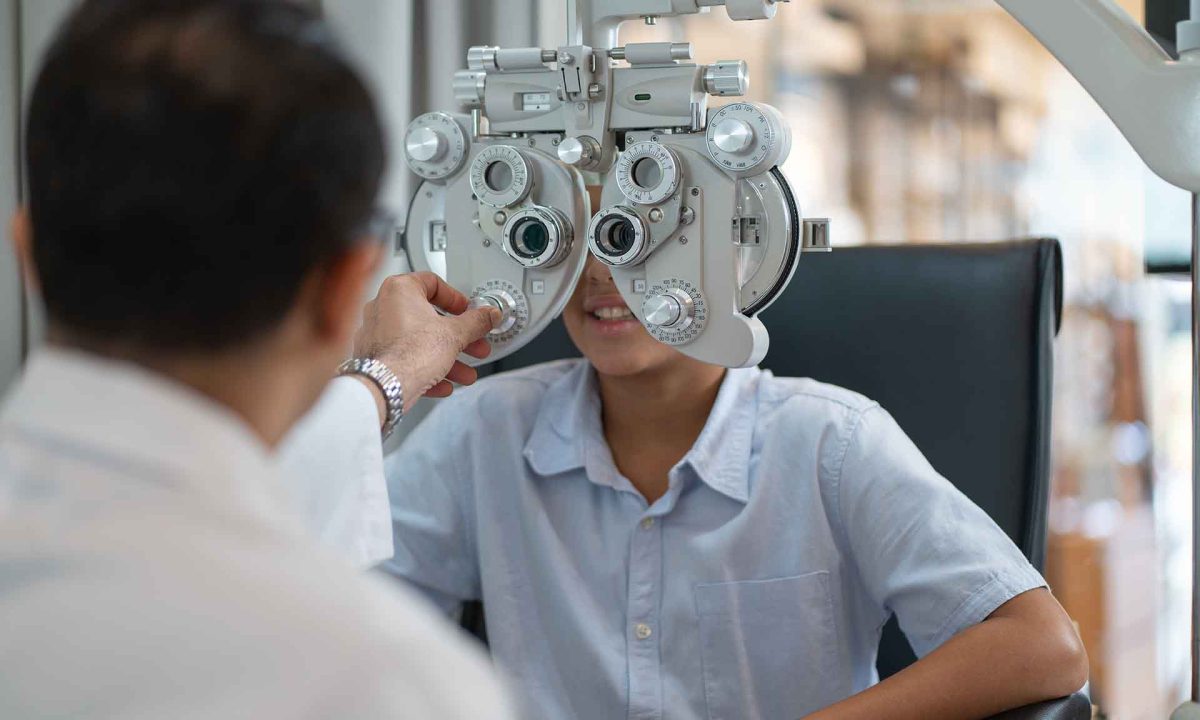
How Your Health Insurance Can Benefit You (and Optimize Your Eye Care)
Your eyes are one of the most important features of your body, as they allow you to see the world with clarity. It is crucial that you take care of them and show them the same care you do to the other parts of your body. Otherwise, you might face detrimental problems that could result in eyesight loss and such. With that being said, it is best that you consistently visit your optometrist and make the most out of your appointments with them, as they can help you find any problems you may be dealing with in terms of your eyes. If you are worried about how much all of this will cost, there are several ways your health insurance may benefit you in this situation.
Basics of Vision Care Coverage
Simply put, vision care is the payment of expenses related to our vision. Either optometrists or ophthalmologists are categorized as eye physicians who provide vision care. Both of these specialties of doctors are qualified to conduct eye exams and provide recommendations on various eye treatments. An ophthalmologist holds a conventional Doctor of Medicine degree with additional study in vision care, whereas an optometrist holds a Doctor of Optometry degree. Optometrists are always included, but only the Blue Vision Global plan covers ophthalmologists. Other common components of vision treatment include contact lenses, laser eye surgery, and prescription eyeglasses (lenses and frames, including sunglasses). The two primary sources of funding for vision care are privately purchased health insurance and government-financed provincial healthcare programs. These private insurance include features that the provincial healthcare system does not, such as vision treatment. Employee benefits, which are group insurance plans acquired via an employer, and individual health and dental plans, sometimes known as “personal health insurance” or “family health insurance,” are the two primary categories of private health insurance.
Personal Health Insurance and Vision Care
Many personal, like an individual, health insurance policies pay some of the cost of vision treatment. Depending on the specific health insurance plan, several levels and types of coverage are available. Eye exams, prescription eyeglasses (lenses and frames), corrective laser surgery, prescription contacts, and visual training tools are all vision care expenditures that may be completely or partially reimbursed (e.g. eye patches). It is important to keep in mind that different insurance providers have different maximum levels of coverage. Additionally, there can be a waiting time before vision benefits start, which also varies through insurance providers.
Vision Care via Employee Benefits
Vision care expenditures are often covered by employee benefits (health insurance obtained via an employer), however, this is not always the case. Vision care frequently has a 2-year benefit period, which indicates that it must be renewed every two years. You must be aware that coverage for eye examinations, glasses, contacts, and frames is often 100%. Additionally, optometrist examinations cost a maximum of $50 every two years. Furthermore, coverage for eyeglasses, contact lenses, and frames has a limit of $100 to $400 every two years. Additionally, a portion of the price of laser eye surgery may be covered by some group insurance policies.
Vision Care Coverage from Provincial Health Care Plans
The expenditures of vision treatment are not often covered by provincial health care policies. Typically, residents of most provincial healthcare plans are not covered for vision care unless they are either younger than 18 or older than 65, at which point basic eye examination expenses are reimbursed (the exception to this is the North-West Territories provincial healthcare plan). Provincial plans often do not cover prescription eyewear, including glasses, contacts, and other eyewear that is prescribed by an ophthalmologist. However, if an eye test is judged “medically essential,” it MAY be reimbursed for any age (e.g. an eye disease, injury due to trauma, or a possible risk to the eyes from a disease like diabetes). Concerning eye operations that are required for medical reasons, see your doctor. It is important to note that the following is province-specific.
Ontario Health Insurance Plan (OHIP)
Residents under the age of 20 or 65 and older are covered for routine eye tests by OHIP (eye exams for all other ages are not covered). Prescription eyeglasses, contact lenses, and the like are not covered, but local experts like your optometrist and others may be able to put you in touch with more reasonable and affordable solutions. Additionally, residents between the ages of 20 and 65 may qualify for vision insurance coverage if they have conditions that could impair their vision, including diabetes, glaucoma, cataracts, strabismus, amblyopia, visual field defects, uveitis, retinal disease, corneal disease, or diseases of the optic pathway. The cost of one routine eye exam every two years is reimbursed for people who receive assistance via Ontario Works, the Ontario Disability Support Program, or the Family Benefits Program.
Your eyes are one of the most important parts of your body and what is even more important is you take care of them. By making sure that your eyes are in their best condition, you are helping yourself avoid any eye vision problems that may lead to additional expenses, like prescription glasses and frequent eye check-ups. If you are facing this problem though, there are various ways to save and reduce the impact of the costs of visiting your optometrist and making sure your eyes are in their best condition with professional help. For instance, there are various insurance providers that can provide you with plans that can partially cover the costs of certain products, like new prescription eyeglasses and contact lenses. Furthermore, you may potentially receive employee vision care benefits from your work that may allow you to save on your eye care expenses. For the province of Ontario, OHIP provides various types of coverage, like covered eye tests for those younger than 20 and older than 65 and a covered routine eye exam for those who receive assistance from places like Ontario Works and the Family Benefits Program. If you have further questions about health insurance relating to eye care or anything relating to your eyes for that matter, consult with your local, trusted eye doctor today!




